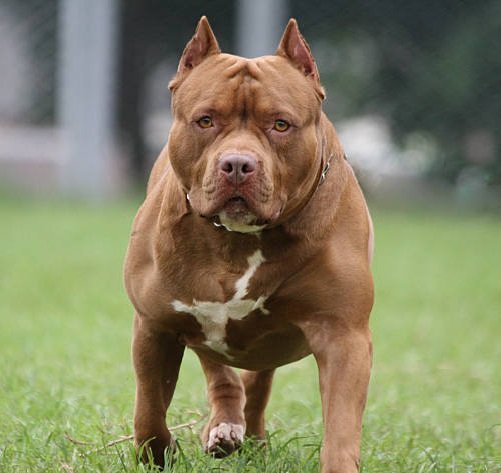Introduction to Pitbull Puppies
Pitbull puppies are among the most affectionate, loyal, and energetic dogs you can bring into your home. Known for their muscular build, captivating eyes, and vibrant personalities, these puppies have won the hearts of dog lovers worldwide. However, raising and caring for Pitbull puppies requires dedication, knowledge, and love. This guide will help you understand everything about these adorable canines, ensuring they grow into well-rounded adults.
The History of Pitbulls
Pitbulls are not a specific breed but rather a category that includes breeds like the American Pit Bull Terrier, Staffordshire Bull Terrier, and American Bully. These dogs originated in the 19th century, bred for bull-baiting and farm work. Despite their history, Pitbull puppies are inherently friendly and eager to please when raised in a nurturing environment.
Characteristics of Pitbull Puppies
Physical Traits
Pitbull puppies are small bundles of energy, typically weighing between 7-15 pounds at 8 weeks of age. Their sleek coats come in a variety of colors, including black, blue, brindle, and white. Their expressive eyes and strong jaws give them a distinctive appearance.
Temperament
Pitbull puppies are known for their affectionate nature. They are intelligent, playful, and love human interaction. Despite misconceptions, they are not inherently aggressive. With proper socialization and training, Pitbull puppies can grow into gentle and obedient companions.
Why Choose Pitbull Puppies?
There are countless reasons why Pitbull puppies make excellent pets:
- Loyalty: These puppies form strong bonds with their families.
- Affectionate Nature: They thrive on cuddles and attention.
- Energetic Personality: Perfect for active households.
- Intelligence: Easy to train and eager to learn.
- Versatility: Great for families, singles, and even as working dogs.
Caring for Pitbull Puppies
Caring for Pitbull puppies involves providing proper nutrition, exercise, grooming, and training. Let’s explore these aspects in detail:
1. Nutrition for Pitbull Puppies
Proper nutrition is crucial for Pitbull puppies to support their rapid growth. High-quality puppy food rich in protein is essential. Look for brands that list meat as the first ingredient.
Tips for Feeding:
- Feed 3-4 small meals per day until 6 months old, then transition to two meals.
- Avoid overfeeding to prevent obesity.
- Provide fresh water at all times.
2. Exercise and Play
Pitbull puppies are highly energetic and require regular exercise to stay healthy. Daily walks, playtime, and mental stimulation are essential.
Activities to Try:
- Fetch
- Tug-of-war
- Agility training
- Puzzle toys
3. Grooming Needs
Pitbull puppies have short coats that require minimal grooming. Weekly brushing and occasional baths are usually enough. However, regular nail trims, ear cleaning, and dental care are important.
Pro Tip: Start grooming routines early to help your puppy become comfortable with the process.
Training Pitbull Puppies
Socialization
Early socialization is critical for Pitbull puppies. Introduce them to various environments, people, and other animals to ensure they grow up confident and friendly.
Obedience Training
Begin obedience training as early as 8 weeks old. Use positive reinforcement techniques like treats and praise to teach basic commands such as:
- Sit
- Stay
- Come
- Leave it
Crate Training
Crate training helps Pitbull puppies feel safe and secure. Choose a crate size that allows them to stand, turn, and lie comfortably.
Potty Training
Be consistent with potty training. Take your puppy out frequently, especially after meals and naps, and reward them for doing their business outside.
Common Health Concerns in Pitbull Puppies
Pitbull puppies are generally healthy, but they may be prone to certain health conditions:
- Hip Dysplasia: A genetic condition affecting the hip joint.
- Skin Allergies: Often caused by food or environmental factors.
- Parvovirus: A deadly disease that affects unvaccinated puppies.
Preventative Measures:
- Regular vet check-ups
- Timely vaccinations
- High-quality diet
Breaking Myths About Pitbull Puppies
Pitbull puppies are often misunderstood due to negative stereotypes. In reality, their behavior depends largely on their upbringing and environment. They are no more aggressive than any other breed when raised with love and care.
Tips for Choosing a Pitbull Puppy
1. Research Reputable Breeders
Look for breeders who prioritize health, temperament, and socialization. Avoid puppy mills and unethical breeders.
2. Meet the Parents
Visiting the puppy’s parents can give you insights into their potential size and temperament.
3. Observe the Puppy
Choose a puppy that is curious, friendly, and interacts well with people. Avoid overly shy or aggressive puppies.
Creating a Safe Environment for Pitbull Puppies
Pitbull puppies are curious and may chew on anything they find. Puppy-proof your home by removing hazards like electrical cords, toxic plants, and small objects they could swallow.
Why Pitbull Puppies Need Responsible Owners
Owning Pitbull puppies comes with a unique set of responsibilities. These dogs thrive under the care of dedicated owners who provide proper training, exercise, and socialization. Irresponsible ownership can lead to behavioral issues and perpetuate negative stereotypes.
Conclusion
Pitbull puppies are loving, energetic, and intelligent companions that can bring immense joy to any household. With proper care, training, and socialization, they grow into loyal and well-mannered dogs. By understanding their needs and dispelling common myths, you can create a fulfilling life for your furry friend.
Whether you’re a first-time dog owner or an experienced pet parent, Pitbull puppies are sure to win your heart with their unwavering affection and zest for life.
Final Note: If you’re considering adding a Pitbull puppy to your family, ensure you’re prepared to meet their needs and provide a loving environment. These puppies are more than pets—they’re family members who will shower you with endless love and loyalty.





